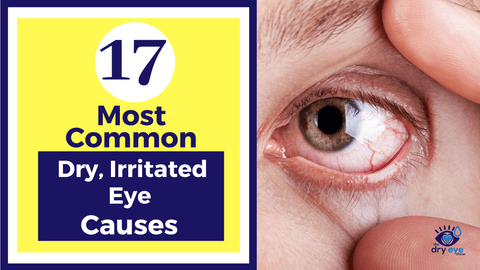Every few years, new dietary guidelines are released, and we find out that the old guidelines were misleading us. No longer is a low fat diet considered healthy, as high-quality fat intake has become the new recommendation. You may not think that diet can affect the eyes, but the health of your eyes are largely dependent on the nutrients you intake daily! Below are a few of the new guidelines and what they mean for you and your eyes.
|
NEW Dietary Guideline |
Real Life |
Ocular Health Benefit |
|
Limit sugar to 10% of calories |
Sugar equivalent= 1 can of soda; NO other added sugar |
Decreases risk of cataract, macular degeneration, glaucoma, and dry eye |
|
Limit Cholesterol phobia |
Egg yolks high in cholesterol are back! |
Egg yolks are a potent carrier of lutein/zeaxanthin/Meso-zeaxanthin. |
|
Emphasize protein-rich food
|
Seafood, lean meat, poultry (or vegetarian beans, lentils): 26oz/week |
Benefit dry eye and macular degeneration. Beware processed and red meats- they can increase cancer risk and problems with ocular blood vessels. |
|
Vegetables and Fruits |
2.5 cups vegetables-all colors 2 cups fruits (50% whole fruit) |
Prevents diabetes and vascular disease; high in lutein and zeaxanthin. |
|
Moderate alcohol is OK |
1 glass for women Two glasses for men |
Red wine benefits cardiovascular and ocular health. |
|
Moderate coffee is OK |
3-5 cups per day; when taken with food, helps prevent glucose spiking |
Decreases risk of Type 2 Diabetes, cardiovascular disease, Parkinson’s Disease. |
|
Fat-free is out/Fat aware is in! -Emphasize Omega-3 “good” fats -Limit Saturated “bad” fats -Limit Trans fat |
10% of calories |
Decreases dry eye symptoms and blepharitis. Prevents problems with the blood vessels inside the eye. |
|
Less salt |
Less than 2300 mg/day -Avoid packaged/processed foods -Less salt=Less iodine |
Watch for iodine deficiency. |
|
Think Ethnic -Mediterranean diet options -Vegetarian diet options |
Variety of nutrient-dense foods is the best |
Decrease morbidity- enhance immunity, longevity. |
Hopefully, these guidelines will be easy enough for you to understand and implement. Diets high in colorful (especially green), leafy fruits and vegetables, along with optimal protein and fat intake, allow the eyes to function at their best. And if you follow these recommendations, I'm pretty sure the rest of you will feel great as well!
One Love,
Dr. Jenna





